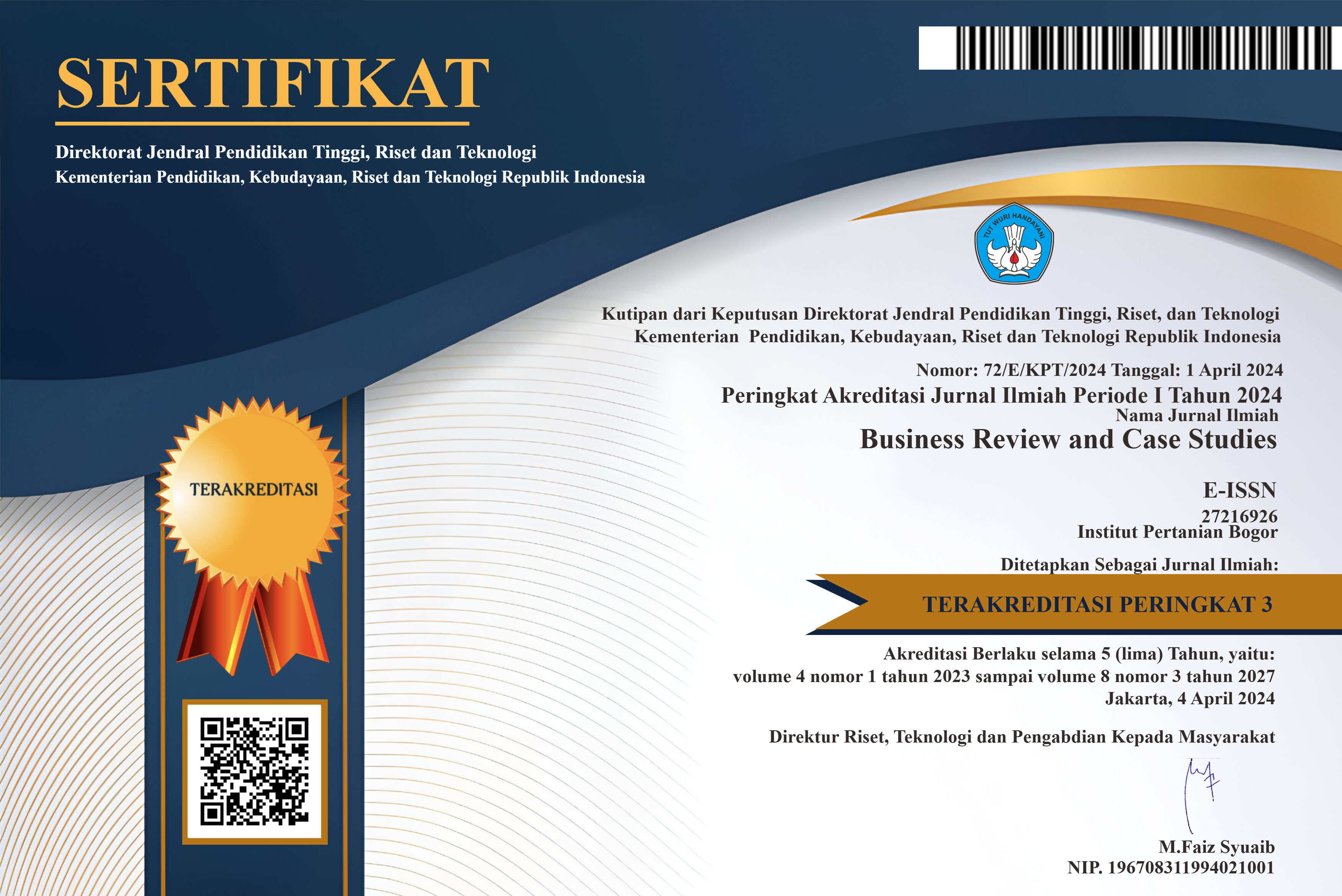Developing a Sustainable Business Model For Bio-Nano Fertilizers to Enhance Peatland Agriculture and Environmental Sustainability
DOI:
https://doi.org/10.17358/brcs.6.1.163Abstract
Background: The utilization of bio-nano fertilizers derived from oil palm waste presents an innovative approach to sustainable agriculture, addressing both environmental concerns and soil fertility enhancement. Conventional fertilizers often contribute to soil degradation and pollution, highlighting the need for eco-friendly alternatives.
Purpose: This study aims to develop a sustainable business model for bio-nano fertilizers by integrating economic feasibility, stakeholder perspectives, and nanotechnology applications.
Design/methodology/approach: A qualitative research approach was employed, combining literature reviews and stakeholder interviews with representatives from government, academia, industry, and farming communities. A total of 12 key respondents were interviewed for this study. The Business Model Canvas (BMC) approach and framework were used to analyze key elements, such as mission, value propositions, key activities, key partnerships, key resources, channels, customer segments, customer relationships, cost structures, revenue streams, impact, and measurements.
Findings/results: The results of this study indicate that bio-nano fertilizers made from micro-cellulose and micro-carbon provide potential benefits, such as increasing soil nutrients, controlling nutrient release, and reducing waste. The business model developed emphasizes cooperation strategies, a variety of distribution channels, and revenue streams, including product sales, licensing, and training services. Policy and regulatory support, research investment, and digital marketing integration are important to strengthen and expand the adoption of this bio-nano fertilizer innovation.
Conclusion: Bio-nano fertilizers have a strong potential for commercialization, benefiting both agricultural productivity and environmental sustainability. This study primarily focuses on business modeling and does not address scalability, long-term impacts, or policy interventions, as these require extensive field trials, multi-year assessments, and policy framework development. Future research should explore these aspects to facilitate broader adoption and sustainable implementation.
Originality/value (state of the art): This study presents a novel business model integrating waste utilization, nanotechnology, and agribusiness sustainability, contributing to the discourse on green innovation and circular economy practices in agriculture.
Keywords: bio-nano fertilizers, business model, nanotechnology, sustainable agriculture, oil palm waste







.jpg)






